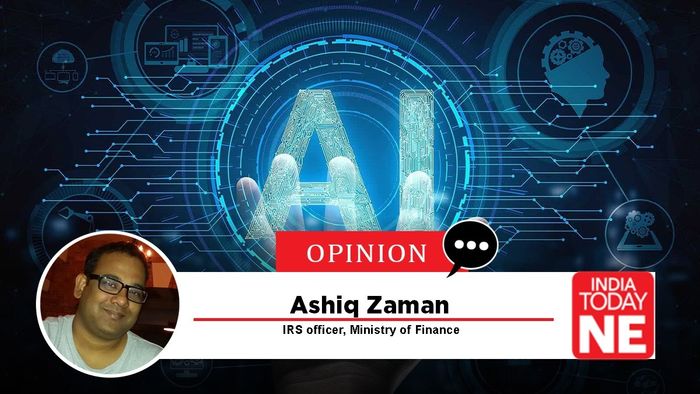Artificial Intelligence: The future of education
AI is transforming education by making it more efficient and personalized. However, challenges like digital inequality must be tackled.

- Feb 03, 2025,
- Updated Feb 03, 2025, 11:12 AM IST
There is no doubt that the rise of Artificial Intelligence (AI) will soon bring about a revolutionary technological shift in our lives. However, this transformation will extend beyond technology, impacting all aspects of human existence. On one hand, AI will enhance efficiency, reliability, and effectiveness across various fields, including manufacturing, transportation, communication, healthcare, and complex problem-solving. On the other hand, it will render many current jobs obsolete, make certain technologies unnecessary, and introduce new challenges related to privacy, security, and ethical concerns.
AI tools like ChatGPT have already gained widespread popularity, performing tasks ranging from complex problem-solving to personalized tutoring, software programming, and music composition. AI is becoming indispensable for students, researchers, teachers, employees, writers, journalists, artists, and musicians alike. As AI continues to evolve, institutional education must adapt to remain relevant and effective.
The current education system is primarily based on memorization, where students learn predefined courses and are assessed on their ability to recall information. This model, designed for the industrial era, has already lost much of its relevance in the information age. With AI making information readily accessible, traditional rote learning will become obsolete, necessitating a shift toward a more analytical and problem-solving approach.
AI not only facilitates easy access to information but also enables diverse and efficient data presentation and analysis. In our current question-and-answer-based education system, AI can instantly generate responses to even the most complex exam questions. Therefore, in the future, knowledge alone will not be sufficient; instead, skills such as critical thinking, data analysis, and creative problem-solving will be essential.
This shift will reduce the emphasis on fact-based subjects like history, political science, social sciences, education, and literature as core disciplines. Instead, specialized branches within these fields, such as archaeology, anthropology, creative writing, and child psychology, will gain importance. Meanwhile, AI literacy, coding, and data analysis will become crucial components of the curriculum. Ethical considerations regarding AI use will also be integral to future education, and traditional distinctions between science, technology, arts, and social sciences will blur, resulting in a multidisciplinary approach to learning.
A significant advantage of AI is its ability to transcend geographical barriers, narrowing the educational divide between urban and rural areas. Students in remote and underdeveloped regions will have access to quality education from top institutions and educators worldwide. Real-time translation will enable students studying in their native languages to participate in lessons taught in any language.
Another key benefit of AI-driven education is personalized learning. AI will continuously analyze students' skills and preferences, tailoring learning methods to their individual needs. This customized approach will help students maximize their potential and foster talent development effectively.
The teaching profession will not disappear, but the role of teachers will evolve. Rather than serving as the sole source of knowledge, teachers will become facilitators, guiding students in critical thinking, problem-solving, and the ethical application of AI. Additionally, they will oversee subjects beyond AI's scope, such as emotional intelligence and interpersonal skills.
Despite the opportunities AI presents, several challenges must be addressed. Digital inequality remains a significant concern, particularly in developing and impoverished regions. If AI tools remain accessible only to the affluent, a new form of educational disparity will emerge. Additionally, overreliance on technology could lead to a decline in fundamental skills, while the absence of human interaction in education may impact students' emotional and social development. Data privacy and security concerns will also intensify in the coming years.
While challenges exist, technological progress cannot be stopped. The wisest approach is to embrace AI's immense potential and implement qualitative improvements in our education system. To ensure global competitiveness, governments, educators, and community leaders must work together to integrate AI into education. If this transformation is approached with urgency rather than hesitation, its impact will be profound and long-lasting.